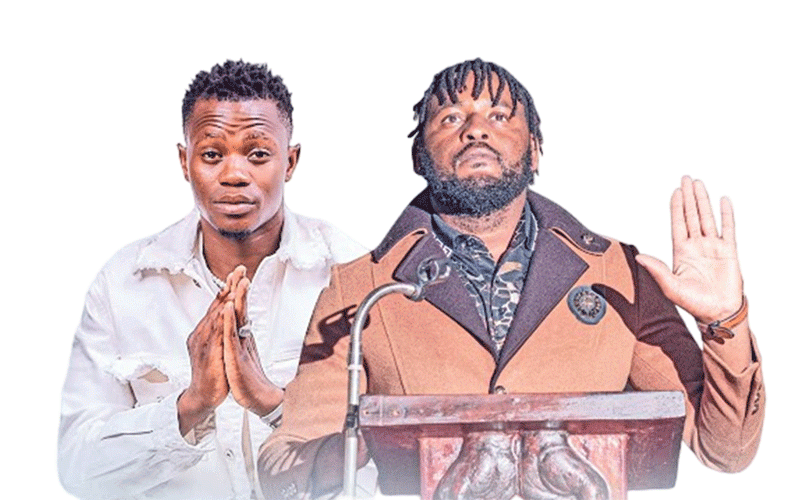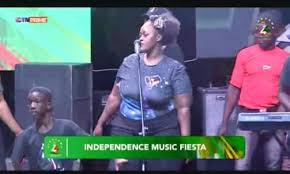
Chinua Achebe once said, “For most writers in the world, there is never any conflict — the mother tongue and the writing language are one and the same. But from time to time, and as a result of grave historical reasons, a writer may be trapped unhappily and invidiously between two imperatives.”
BookWorm
Yet for Charles Mungoshi, he has always found a way of writing between two languages.
He is no doubt accomplished in both English and Shona so much that in the 1970s and 1980s, he would sometimes simultaneously publish books in both languages in the same year. Only a genius can mediate between cultures.
One of the most innovative translation projects ever to be done in Zimbabwe is Mungoshi’s Tsanga yeMbeu. Here, Mungoshi famously translated Ngugi’s A Grain of Wheat into Shona.
For a long time, I had been looking for a copy. But as with most books published in Zimbabwe in the 70s and 80s, it will not be surprising if the book has long been out of print. However, I finally got a second-hand on the Harare streets by chance.
Reading literature in translation is a marvel — I have done it with French, Russian, Japanese and Chinese authors translated into English.
Literature grows when its readers own their stories
- Chamisa under fire over US$120K donation
- Mavhunga puts DeMbare into Chibuku quarterfinals
- Pension funds bet on Cabora Bassa oilfields
- Councils defy govt fire tender directive
Keep Reading
Translation bridges the delicate emotional connections between cultures and languages and furthers the understanding of human beings across national borders.
In the act of literary translation, the soul of another culture becomes transparent, and the translator recreates the refined sensibilities of foreign countries and their people through the linguistic, musical, rhythmic, and visual possibilities of the new language.
Ngugi has spoken passionately of his “deep concern at what we are doing to the continent and this generation.” He says, “It pains me, in a personal kind of way to see the entire intellectual production of Africa — the one that is visible — in European languages” as if “Africa can only know itself or be visible in English.”
Mungoshi would not have sought a better writer to translate than Ngugi. The Mau-mau struggle in Kenya becomes the Chimurenga in Zimbabwe. If one did not know that, Tsanga yeMbeu would pass as a local story, almost. The confrontation against the colonial establishment, the yearnings of the black people are no different.
Whether it is in Ngugis’s version or Mungoshi’s, the devil is the same colour.
Using a back and forth narrative style, Ngugi provided the reader the background of most of the characters involved and their role to bring Uhuru. And through this we get to know that most of the so-called freedom fighters had at one point in time betrayed the Uhuru cause due to circumstances.
Mungoshi adeptly translates these nuggets of stories in Shona such that the experiences become his, very Zimbabwean and relatable.
A Grain of Wheat is a novel about collective struggle. In the book, Ngugi used an omniscient narrator.
The use of “we”, “us” and “you” could point to a narrator with a collective conscience as the liberation struggle was bigger than the individual. This hidden character was there at independence and was there when the struggle started. It is the spirit of Kenya.
But Ngugi was not just interested in those who fight and reclaim freedom. A Grain of Wheat is as much about the unknown soldiers and those who are not celebrated even though they have made it their aim to fight for independence.
Mungoshi translates the Kenyan struggle and localises it as his own experience. His translation is as much a reader’s translation of an experience he identifies with. Tsanga yeMbeu is not an awkward text by any measure but flows and meanders. Its texture is real. Mungoshi certainly did justice to the project because he owned the story and made it his own.
Elnathan John, one of the Caine Prize writers who was recently in Zimbabwe, mentioned a lot about the growth and development of Hausa literature in Nigeria.
As a result, BBC Hausa is a fast growing arm of the BBC World Service. Literature grows when its readers own their stories.
A lot of young children in Zimbabwe cannot read Shona and if we do nothing to redress this situation, that is the death of us.











